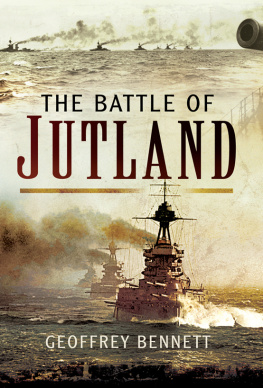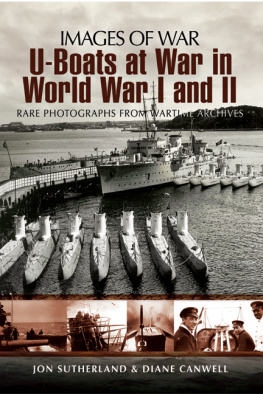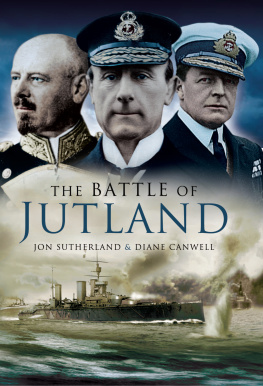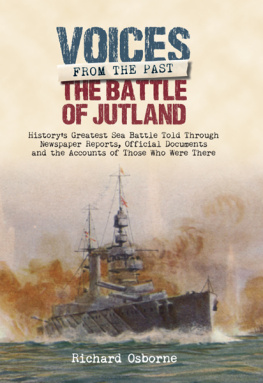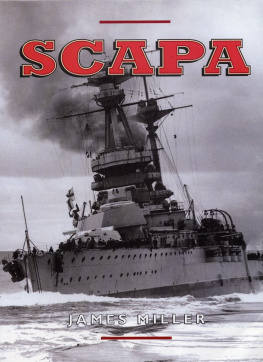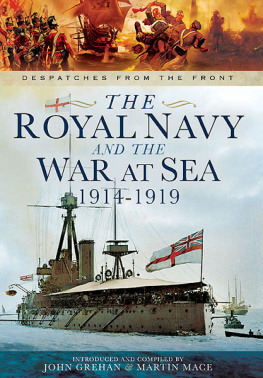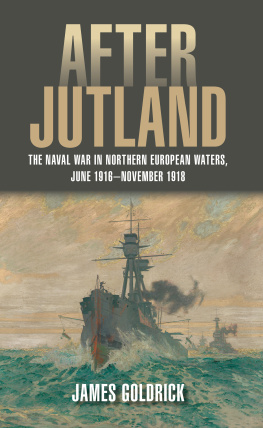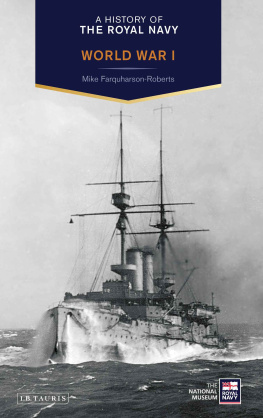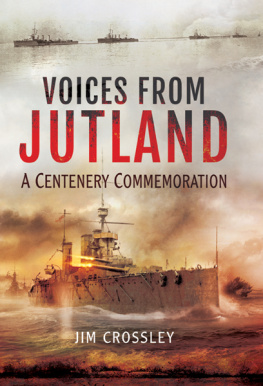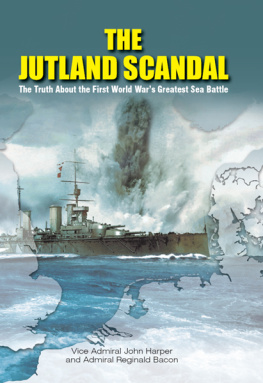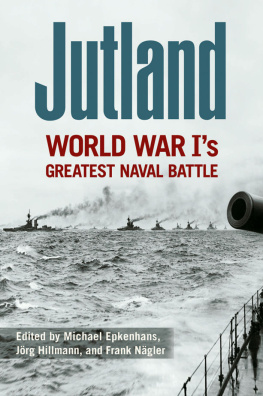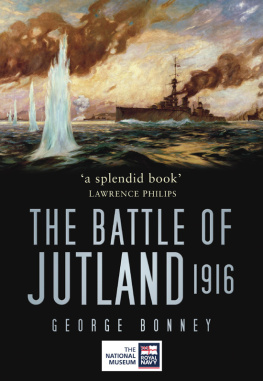THE BATTLE OF
J UTLAND
THE BATTLE OF
J UTLAND
GEOFFREY BENNETT

Pen & Sword
MARITIME
First published in Great Britain in 1964 by B. T. Batsford Ltd.
Second impression published in 1972 by David Charles Ltd.
Published in 2006 and reprinted in this format in 2015 by
PEN & SWORD MARITIME
An imprint of
Pen & Sword Books Ltd
47 Church Street
Barnsley, South Yorkshire
S70 2AS
Copyright Geoffrey Bennett, 1964, 1972, 2006, 2015
ISBN 978-1-78159-633-3
The right of Geoffrey Bennett to be identified as Author of this work has been
asserted by him in accordance with the Copyright, Designs and Patents Act 1988.
A CIP catalogue record for this book is available from the British Library.
All rights reserved. No part of this book may be reproduced or
transmitted in any form or by any means, electronic or mechanical
including photocopying, recording or by any information storage and
retrieval system, without permission from the Publisher in writing.
Printed and bound in England
By CPI Group (UK) Ltd, Croydon, CR0 4YY
Pen & Sword Books Ltd incorporates the Imprints of Aviation, Atlas,
Family History, Fiction, Maritime, Military, Discovery, Politics, History,
Archaeology, Select, Wharncliffe Local History, Wharncliffe True Crime,
Military Classics, Wharncliffe Transport, Leo Cooper, The Praetorian Press,
Remember When, Seaforth Publishing and Frontline Publishing.
For a complete list of Pen & Sword titles please contact
PEN & SWORD BOOKS LIMITED
47 Church Street, Barnsley, South Yorkshire, S70 2AS, England
E-mail: enquiries@pen-and-sword.co.uk
Website: www.pen-and-sword.co.uk
PREFACE TO THE FIRST EDITION
Since a reviewer of a previous book of mine, Coronel and the Falklands, observed it is doubtful if another book on the subject is justified, a word to disarm the same criticism of The Battle of Jutland to the Germans, Skagerrak will not come amiss. Although not decisive, as were Nelsons battles, the only major naval action of the First World War has a unique claim to attention. In 1805, 27 British ships-of-the-line with a maximum burden of 2,250 tons annihilated 33 ships from France and Spain in the last fleet action fought in open water before sail gave way to steam. A century later Togo, with 4 battleships as large as 16,000 tons and 8 armoured cruisers, destroyed the same number of Russian vessels in the principal naval engagement in the 100 years before the completion of the Dreadnought. In contrast, no fewer than 64 capital ships, one displacing 28,500 tons, met in combat at Jutland on 31st May 1916. In short, this was the biggest battle at sea since Henry VIII armed his ships with great guns. It was also the last before nations could no longer afford battleships in such numbers, before aircraft deprived them of their paramount power, and before guided missiles and nuclear weapons transformed the pattern of maritime warfare. In 1864 It was clear that the world would never again see a fleet such as that of which the Victory remains a lasting memorial. Today it is certain that none will see again the massive dreadnoughts with which Jellicoe and Beatty fought Scheer and Hipper nearly 50 years ago.
There is, however, a more important justification for this book. The present writer is the first, with the distinguished exception of the late Sir Julian Corbett (Naval Operations, Vol. III more than forty years ago), to produce an acount of the battle with the advantage of access to the papers of the late Vice-Admiral J. E. T. Harper. These relate to the suppression of the original Harper Record prepared in 1919, as well as to the equally suppressed secret Naval Staff Appreciation of Jutland (1923), a checkered story sketched in Appendix III though it should not be inferred that 1 have accepted all the strictures on the conduct of the battle which the latter contains.
My first chapter summarizes the circumstances in which Germany elected to challenge British sea power in August 1914; my second covers operations in the North Sea up to 31st May 1916. Both are needed for a proper understanding of Jutland, and my account is enriched by the personal recollections of those who fought under Jellicoe and Scheer, of which one must have pride of place here:
The Jutland battle was a great thing to have been in; it was very different from what I expected. We in the Collingwood saw a good deal more than some of the other ships and we fired more than they did. We were not hit at all, which was very lucky, though we were straddled several times. One shell dropped over the forecastle, missing us by inches. I was In the fore turret, second-in-command. During some part of it I was sitting on top when they straddled us. I didnt remain up very long after that! We had no breakdowns of any sort. Everything worked very well: as for the men, they were quite marvellous, just as cheery as usual and worked like demons. The worst part of it was the night afterwards. we ceased firing at 9 p.m. and went to night defence until 2 a.m. when we closed up in the turrets again. We were sick at not seeing the enemy again that morning.
This account by the future King George VI, then Sub-Lieutenant Prince Albert, recalls the words of the Spanish Admiral Langara at Gibralta in 1780 when he found the embryo King William IV serving as a midshipman in the Prince George in which he was present at the Battle of Cape St Vincent: Well does Great Britain merit the Empire of the Sea when the humblest stations in her navy are supported by Princes of the Blood.
My final chapter attempts an assessment of the battle and reasons why. Though I have done my best to be fair to both sides, this cannot be wholly objective so much is not to be expected of a British writer. It has, however, one advantage over the work of the majority of previous Jutland historians; I was born too late to suffer the bias which blinded them in favour of either Jellicoe or Beatty. This is not to claim that I have written the definitive account of a battle which both so ably fought, as did their German opponents. More than 100 years elapsed before an Admiralty Commission issued such a version of Trafalgar; as long may elapse before the last word is said about Jutland.
For reasons of space I have abbreviated quotations from documents and other sources without disfiguring them with ellipses. I have not, of course, distorted their sense.
GEOFFREY BENNETT
London 1964
PREFACE TO THIS EDITION
Who won the battle of Jutland?
I still recall posing that apparently simple question to the naval history instructor during my national service in the Royal Navy.
Of course his answer was not nearly so uncomplicated; though Britain lost the most ships, Jellicoe did not, as Churchill had feared he could, lose the war in an afternoon. The failure of the German High Seas Fleet to put to sea again and its final disintegration into mutiny were enough to play a vital part in British victory.
The best short answer must be that concept, one that tyro-students of military affairs can have difficulty in comprehending, of a tactical defeat but a strategic victory.
When I was able to read my fathers book some years later I had a much clearer understanding of it all.
Perhaps his greatest discovery was the Dewar brothers Naval Staff Appreciation of which all copies were supposed to have been destroyed. This was intriguing not because it offered any dramatic new insights (the brothers later published other writings on the battle covering similar ground) but showing that someone he showed me the copy but never even told me who had lent it to him was not prepared to tolerate the complete obliteration of something of significant historical interest if not great importance.

